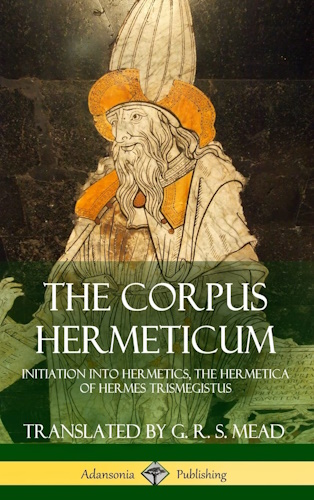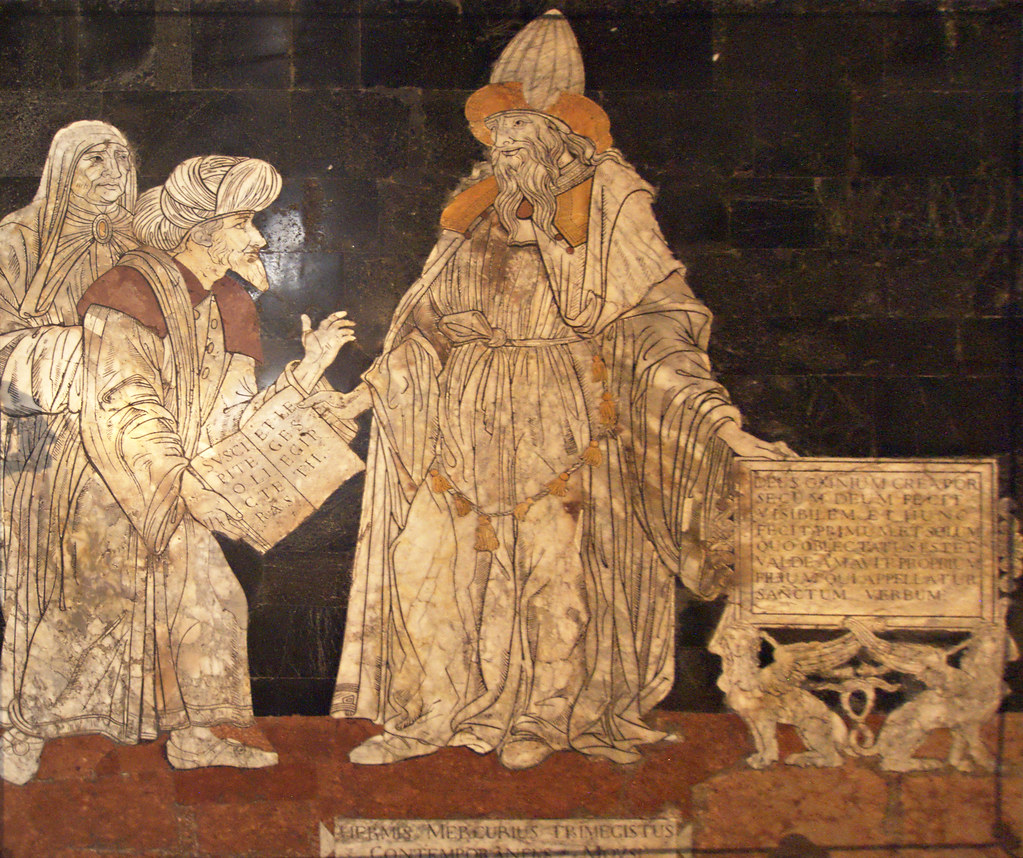
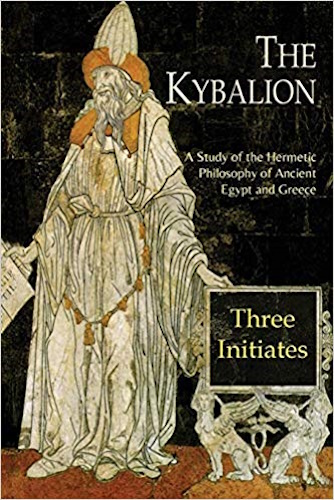

![Thrice-Greatest Hermes; Studies in Hellenistic Theosophy and Gnosis [Three Volumes in One] Thrice-Greatest Hermes; Studies in Hellenistic Theosophy and Gnosis [Three Volumes in One]](http://realityroars.com/images/affiliate-creative/thrice-greatest-hermes--studies-in-hellenistic-theosophy-and-gnosis.jpg)

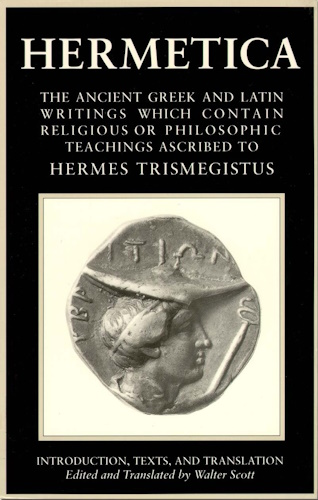



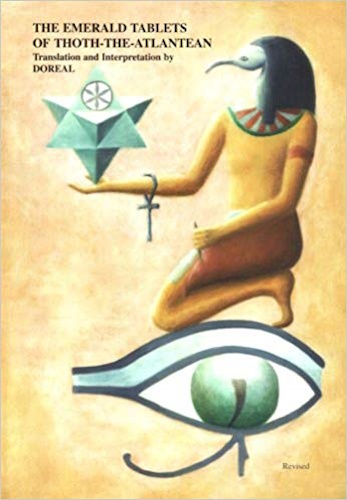

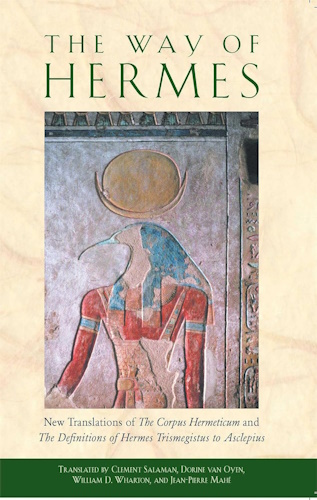

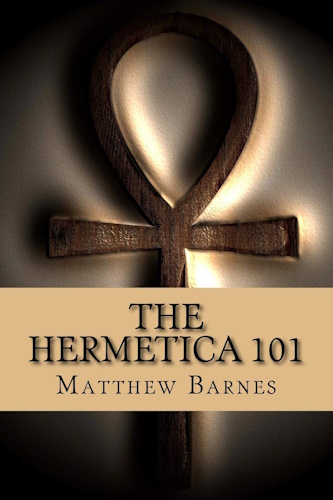

![]()
![]()
V. Though Unmanifest God Is Most Manifest
<This sermon is a fairly straightforward Hermetic version of the "argument by design," a standard approach since ancient times to a proof of the existence of God. Typically, for a Hermetic tractate, its choice of evidence includes a paean on the beauty and perfection of the human form. - JMG>
1. I will recount to thee this sermon (logos) too, O Tat, that thou may'st cease to be without the mysteries of the God beyond all name. And mark thou well how that which to the many seems unmanifest, will grow most manifest for thee.
Now were it manifest, it would not be. For all that is made manifest is subject to becoming, for it hath been made manifest. But the Unmanifest for ever is, for It doth not desire to be made manifest. It ever is, and maketh manifest all other things.
Being Himself unmanifest, as ever being and ever making-manifest, Himself is not made manifest. God is not made Himself; by thinking-manifest <i.e., thinking into manifestation>, He thinketh all things manifest.
Now "thinking-manifest" deals with things made alone, for thinking-manifest is nothing else than making.
2. He, then, alone who is not made, 'tis clear, is both beyond all power of thinking-manifest, and is unmanifest.
And as He thinketh all things manifest, He manifests through all things and in all, and most of all in whatsoever things He wills to manifest.
Do thou, then, Tat, my son, pray first unto our Lord and Father, the One-and-Only One, from whom the One doth come, to show His mercy unto thee, in order that thou mayest have the power to catch a thought of this so mighty God, one single beam of Him to shine into thy thinking. For thought alone "sees" the Unmanifest, in that it is itself unmanifest.
If, then, thou hast the power, He will, Tat, manifest to thy mind's eyes. The Lord begrudgeth not Himself to anything, but manifests Himself through the whole world.
Thou hast the power of taking thought, of seeing it and grasping it in thy own "hands," and gazing face to face upon God's Image. But if what is within thee even is unmanifest to thee, how, then, shall He Himself who is within thy self be manifest for thee by means of [outer] eyes?
3. But if thou wouldst "see" him, bethink thee of the sun, bethink thee of moon's course, bethink thee of the order of the stars. Who is the One who watcheth o'er that order? For every order hath its boundaries marked out by place and number.
The sun's the greatest god of gods in heaven; to whom all of the heavenly gods give place as unto king and master. And he, this so-great one, he greater than the earth and sea, endures to have above him circling smaller stars than him. Out of respect to Whom, or out of fear of Whom, my son, [doth he do this]?
Nor like nor equal is the course each of these stars describes in heaven. Who [then] is He who marketh out the manner of their course and its extent?
4. The Bear up there that turneth round itself, and carries round the whole cosmos with it - Who is the owner of this instrument? Who He who hath set round the sea its bounds? Who He who hath set on its seat the earth?
For, Tat, there is someone who is the Maker and the Lord of all these things. It cound not be that number, place and measure could be kept without someone to make them. No order whatsoever could be made by that which lacketh place and lacketh measure; nay, even this is not without a lord, my son. For if the orderless lacks something, in that it is not lord of order's path, it also is beneath a lord - the one who hath not yet ordained it order.
5. Would that it were possible for thee to get thee wings, and soar into the air, and, poised midway 'tween earth and heaven, behold the earth's solidity, the sea's fluidity (the flowings of its streams), the spaciousness of air, fire's swiftness, [and] the coursing of the stars, the swiftness of heaven's circuit round them [all]!
Most blessed sight were it, my son, to see all these beneath one sway - the motionless in motion, and the unmanifest made manifest; whereby is made this order of the cosmos and the cosmos which we see of order.
6. If thou would'st see Him too through things that suffer death, both on the earth and in the deep, think of a man's being fashioned in the womb, my son, and strictly scrutinize the art of Him who fashions him, and learn who fashioneth this fair and godly image of the Man.
Who [then] is He who traceth out the circles of the eyes; who He who boreth out the nostrils and the ears; who He who openeth [the portal of] the mouth; who He who doth stretch out and tie the nerves; who He who channels out the veins; who He who hardeneth the bones; who He who covereth the flesh with skin; who He who separates the fingers and the joints; who He who widens out a treading for the feet; who He who diggeth out the ducts; who He who spreadeth out the spleen; who he who shapeth heart like to a pyramid; who He who setteth ribs together; who He who wideneth the liver out; who He who maketh lungs like to a sponge; who He who maketh belly stretch so much; who he who doth make prominent the parts most honorable, so that they may be seen, while hiding out of sight those of least honor?
7. Behold how many arts [employed] on one material, how many labors on one single sketch; and all exceeding fair, and all in perfect measure, yet all diversified! Who made them all? What mother, or what sire, save God alone, unmanifest, who hath made all things by His Will?
8. And no one saith a statue or a picture comes to be without a sculptor or [without] a painter; doth [then] such workmanship as this exist without a Worker? What depth of blindness, what deep impiety, what depth of ignorance! See, [then] thou ne'er, son Tat, deprivest works of Worker!
Nay, rather is He greater than all names, so great is He, the Father of them all. For verily He is the Only One, and this is His work, to be a father.
9. So, if thou forcest me somewhat too bold, to speak, His being is conceiving of all things and making [them].
And as without its maker its is impossible that anything should be, so ever is He not unless He ever makes all things, in heaven, in air, in earth, in deep, in all of cosmos, in every part that is and that is not of everything. For there is naught in all the world that is not He.
He is Himself, both things that are and things that are not. The things that are He hath made manifest, He keepeth things that are not in Himself.
10. He is the God beyond all name; He the unmanifest, He the most manifest; He whom the mind [alone] can contemplate, He visible to the eyes [as well]; He is the one of no body, the one of many bodies, nay, rather He of every body.
Naught is there which he is not. For all are He and He is all. And for this cause hath He all names, in that they are one Father's. And for this cause hath He Himself no nome, in that He's Father of [them] all.
Who, then, may sing Thee praise of Thee, or [praise] to Thee?
Whither, again, am I to turn my eyes to sing Thy praise; above, below, within, without?
There is no way, no place [is there] about Thee, nor any other thing of things that are.
All [are] in Thee; all [are] from Thee, O Thou who givest all and takest naught, for Thou hast all and naught is there Thou hast not.
11. And when, O Father, shall I hymn Thee? For none can seize Thy hour or time.
For what, again, shall I sing hymn? For things that Thou hast made, or things Thou hast not? For things Thou hast made manifest, or things Thou hast concealed?
How, further, shall I hymn Thee? As being of myself? As having something of mine own? As being other?
For that Thou art whatever I may be; Thou art whatever I may do; Thou art whatever I may speak.
For Thou art all, and there is nothing else which Thou art not. Thou art all that which doth exist, and Thou art what doth not exist - Mind when Thou thinkest, and Father when Thou makest, and God when Thou dost energize, and Good and Maker of all things.
For that the subtler part of matter is the air, of air the soul, of soul the mind, and of mind God.


![Thrice-Greatest Hermes; Studies in Hellenistic Theosophy and Gnosis [Three Volumes in One] Thrice-Greatest Hermes; Studies in Hellenistic Theosophy and Gnosis [Three Volumes in One]](http://realityroars.com/images/affiliate-creative/thrice-greatest-hermes--studies-in-hellenistic-theosophy-and-gnosis.jpg)











-
Urantia Book, 44:0.11 - The Celestial Artisans
Never in your long ascendancy will you lose the power to recognize your associates of former existences. Always, as you ascend inward in the scale of life, will you retain the ability to recognize and fraternize with the fellow beings of your previous and lower levels of experience. Each new translation or resurrection will add one more group of spirit beings to your vision range without in the least depriving you of the ability to recognize your friends and fellows of former estates.
-
Princess Bride 1987 Wallace Shawn (Vizzini) and Mandy Patinkin (Inigo Montoya)
Vizzini: HE DIDN'T FALL? INCONCEIVABLE.
Inigo Montoya: You keep using that word. I do not think it means what you think it means. -
Urantia Book, 117:4.14 - The Finite God
And here is mystery: The more closely man approaches God through love, the greater the reality -- actuality -- of that man. The more man withdraws from God, the more nearly he approaches nonreality -- cessation of existence. When man consecrates his will to the doing of the Father's will, when man gives God all that he has, then does God make that man more than he is.
-
Urantia Book, 167:7.4 - The Talk About Angels
"And do you not remember that I said to you once before that, if you had your spiritual eyes anointed, you would then see the heavens opened and behold the angels of God ascending and descending? It is by the ministry of the angels that one world may be kept in touch with other worlds, for have I not repeatedly told you that I have other sheep not of this fold?"
-
Urantia Book, Foreword - 0:12.12 - The Trinities
But we know that there dwells within the human mind a fragment of God, and that there sojourns with the human soul the Spirit of Truth; and we further know that these spirit forces conspire to enable material man to grasp the reality of spiritual values and to comprehend the philosophy of universe meanings. But even more certainly we know that these spirits of the Divine Presence are able to assist man in the spiritual appropriation of all truth contributory to the enhancement of the ever-progressing reality of personal religious experience—God-consciousness.
-
Urantia Book, 1:4.3 - The Mystery Of God
When you are through down here, when your course has been run in temporary form on earth, when your trial trip in the flesh is finished, when the dust that composes the mortal tabernacle "returns to the earth whence it came"; then, it is revealed, the indwelling "Spirit shall return to God who gave it." There sojourns within each moral being of this planet a fragment of God, a part and parcel of divinity. It is not yet yours by right of possession, but it is designedly intended to be one with you if you survive the mortal existence.
-
Urantia Book, 1:4.1 - The Mystery Of God
And the greatest of all the unfathomable mysteries of God is the phenomenon of the divine indwelling of mortal minds. The manner in which the Universal Father sojourns with the creatures of time is the most profound of all universe mysteries; the divine presence in the mind of man is the mystery of mysteries.
-
Urantia Book, 1:4.6 - The Mystery Of God
To every spirit being and to every mortal creature in every sphere and on every world of the universe of universes, the Universal Father reveals all of his gracious and divine self that can be discerned or comprehended by such spirit beings and by such mortal creatures. God is no respecter of persons, either spiritual or material. The divine presence which any child of the universe enjoys at any given moment is limited only by the capacity of such a creature to receive and to discern the spirit actualities of the supermaterial world.
-
Urantia Book, 11:0.1 - The Eternal Isle Of Paradise
Paradise is the eternal center of the universe of universes and the abiding place of the Universal Father, the Eternal Son, the Infinite Spirit, and their divine co-ordinates and associates. This central Isle is the most gigantic organized body of cosmic reality in all the master universe. Paradise is a material sphere as well as a spiritual abode. All of the intelligent creation of the Universal Father is domiciled on material abodes; hence must the absolute controlling center also be material, literal. And again it should be reiterated that spirit things and spiritual beings are real.
-
Urantia Book, 50:6.4 - Planetary Culture
Culture presupposes quality of mind; culture cannot be enhanced unless mind is elevated. Superior intellect will seek a noble culture and find some way to attain such a goal. Inferior minds will spurn the highest culture even when presented to them ready-made.
-
Urantia Book, 54:1.6 - True And False Liberty
True liberty is the associate of genuine self-respect; false liberty is the consort of self-admiration. True liberty is the fruit of self-control; false liberty, the assumption of self-assertion. Self-control leads to altruistic service; self-admiration tends towards the exploitation of others for the selfish aggrandizement of such a mistaken individual as is willing to sacrifice righteous attainment for the sake of possessing unjust power over his fellow beings.
-
Urantia Book, 54:1.9 - True And False Liberty
How dare the self-willed creature encroach upon the rights of his fellows in the name of personal liberty when the Supreme Rulers of the universe stand back in merciful respect for these prerogatives of will and potentials of personality! No being, in the exercise of his supposed personal liberty, has a right to deprive any other being of those privileges of existence conferred by the Creators and duly respected by all their loyal associates, subordinates, and subjects.
-
Urantia Book, 54:1.8 - True And False Liberty
There is no error greater than that species of self-deception which leads intelligent beings to crave the exercise of power over other beings for the purpose of depriving these persons of their natural liberties. The golden rule of human fairness cries out against all such fraud, unfairness, selfishness, and unrighteousness.

